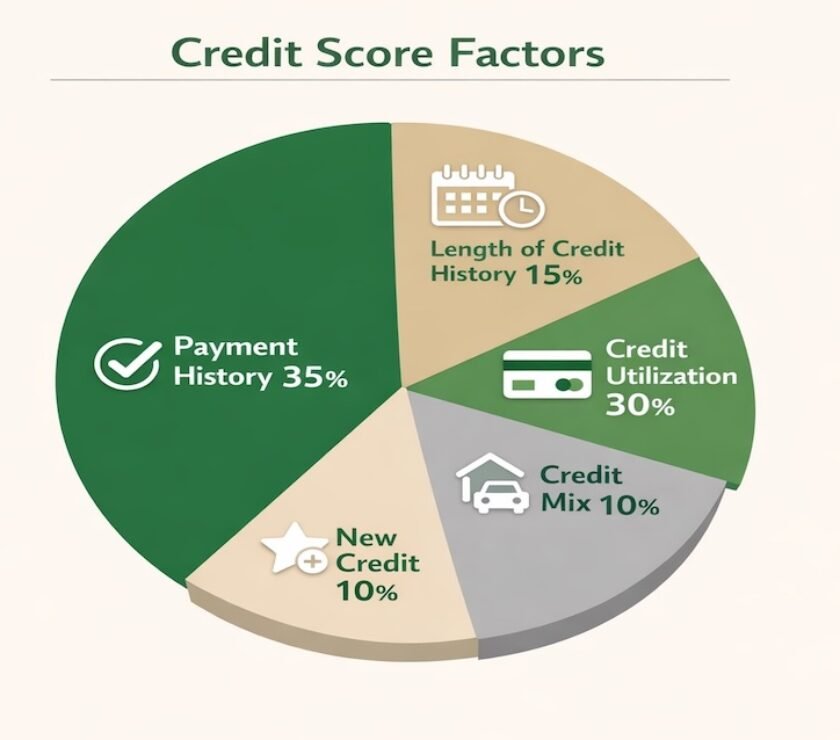TL;DR If you want to invest passively, both index funds and ETFs can work well—but they serve different vibes. ETFs are cheaper and more flexible. Index funds are great for set-it-and-forget-it investing. Which is best? Depends on how involved you want to be.
Intro: Investing’s Dynamic Duo, But Not Twins
Here’s a fun truth no one tells you when you first start investing: you don’t have to choose between high-risk day trading or letting your cash rot in a savings account. Two of the most reliable ways to grow your money with minimal stress are index funds and ETFs.
They’re both built for passive investing. They both track market indexes. But when you get into the details—how they trade, what they cost, and how taxes work—they start to look more like cousins than twins. Picking the right one can help you invest smarter without getting buried in the weeds.
Let’s unpack it.
What Are Index Funds?
Index funds are like the cruise control of investing. They’re mutual funds that aim to match the performance of a market index (like the S&P 500 or Nasdaq 100). That means they aren’t trying to beat the market—they just want to ride the wave.
They’re often used in retirement accounts because they’re stable, low-cost, and great for long-term strategies. You buy in once a day at the closing price, and there’s not much else to think about.
Why people like index funds:
They’re dead simple
You can automate monthly contributions
Costs are low, and management is passive
Ideal for 401(k)s, IRAs, and hands-off investors
Watch out for:
Higher minimum investments (often $500 or more)
Less flexibility—you can’t trade during the day
Tax efficiency isn’t their strong suit in taxable accounts
What Are ETFs?
ETFs—short for exchange-traded funds—are like index funds with hustle. They also track market indexes but are traded on stock exchanges throughout the day.
They’re wildly popular with younger investors because you can buy in for a few dollars, make fractional investments, and trade them just like stocks on apps like Fidelity, Schwab, or Robinhood.
Why people like ETFs:
Ultra-low fees (seriously, some are close to free)
No minimum investment—you can buy just $1 worth
Tax efficiency is top-tier, especially in brokerage accounts
Great for flexible, self-directed investing
Watch out for:
You need a brokerage account to buy them
Automation isn’t built-in (unless your platform supports it)
It’s easy to fall into the trap of over-trading
Key Differences: Index Funds vs ETFs
| Feature | Index Funds | ETFs |
|---|---|---|
| Trading | Once daily (after market close) | All day, like stocks |
| Fees | Low | Even lower |
| Minimum Investment | Usually $500+ | As low as $1 |
| Automation | Easy to set up | Depends on platform |
| Tax Efficiency | Moderate | High |
Pros and Cons at a Glance
Index Funds
Perfect for long-term goals (like retirement)
Easy to automate
Set-it-and-forget-it simplicity
– Higher minimum to start
– Less flexible
– May distribute capital gains
ETFs
Super flexible—you decide when to buy/sell
Often cheaper than index funds
Very tax-friendly in brokerage accounts
– Not great for automation (unless using special tools)
– You’ll need to learn how to place trades
– Can tempt you to micromanage your portfolio
Tax Talk: Why ETFs Usually Win
If you’re investing in a regular brokerage account, taxes matter. ETFs are structured in a way that allows them to avoid distributing capital gains during trades—thanks to a process called in-kind redemption.
Index funds, on the other hand, might surprise you with a tax bill even if you didn’t sell anything. That’s why many investors save index funds for retirement accounts and lean on ETFs for taxable ones.
Which One Fits You Best?
If you want to invest in your sleep, index funds are your friend. You can automate your contributions and forget about market timing.
If you want flexibility and you’re comfortable checking in on your investments occasionally, ETFs offer more control—and a bit more efficiency.
You might prefer…
Index Funds → if you’re investing in a 401(k) or prefer automation
ETFs → if you want flexibility, especially in a brokerage account
Final Verdict: You Really Can’t Go Wrong
There’s no single winner in the index funds vs ETFs debate—it all comes down to how much control you want and how you like to manage your money.
Here’s a good rule of thumb:
Use index funds if you’re looking for simplicity, automation, and long-term growth.
Use ETFs if you want low costs, tax perks, and flexibility to buy/sell anytime.
You can even hold both, using each in the account type where they shine brightest.
FAQ
Can I own both?
Yes, and many investors do. Index funds in your 401(k), ETFs in your brokerage? That’s a common setup.
Do ETFs pay dividends?
Yes! Many of them do, just like index funds.
Which is safer?
Neither is inherently safer—it depends on what index they track (like S&P 500 vs small caps). Diversified funds tend to be lower risk.
Are ETFs good for beginners?
They can be, especially with apps that offer fractional investing. Just make sure you understand how to place a trade.
Sources
Want to Learn More?
Check these out:


Disclaimer:
This article is based on general financial knowledge and is not intended to replace personalized financial advice. Always consult a licensed financial advisor before making investment decisions. PersonalOne may receive commissions from affiliate links mentioned.




